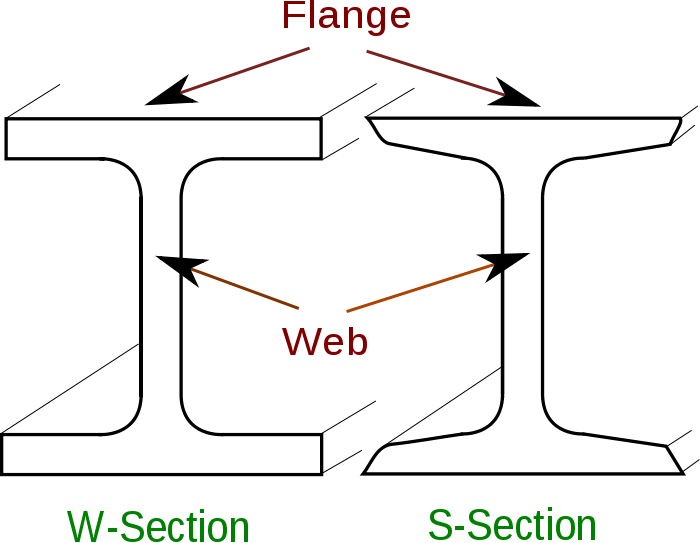
The Difference Between Steel H Beams and I Beams RWSteel
I-Beam vs. H-Beam. I-beam connecting rod. There are two basic styles of connecting rods: I-beam and H-beam. Most stock connecting rods are I-beam. Stock V8 connecting rods can handle upward of 400 horsepower and 6,500 rpm. Once you exceed those performance levels, you'll need to consider aftermarket connecting rods. Depending on the type of.

Difference between HBeam and IBeam Difference Between
H Beam Vs I Beam. If you're trying to make a lot of boost, an I-beam connecting rod is the best choice. When you need to lighten up the rotating assembly the H-beam connecting rod should be at the top of your list. These rods are a better fit for a naturally-aspirated engine where you're turning a high level of rpm.

HBeam vs IBeam What Is HBeam What Is IBeam
Summary: - H-Beam vs. I-Beam Overview. - H-Beam: Features equal-sized, parallel flanges, optimized section area distribution, and reasonable strength-to-weight ratio. - I-Beam: Has sloped flanges.
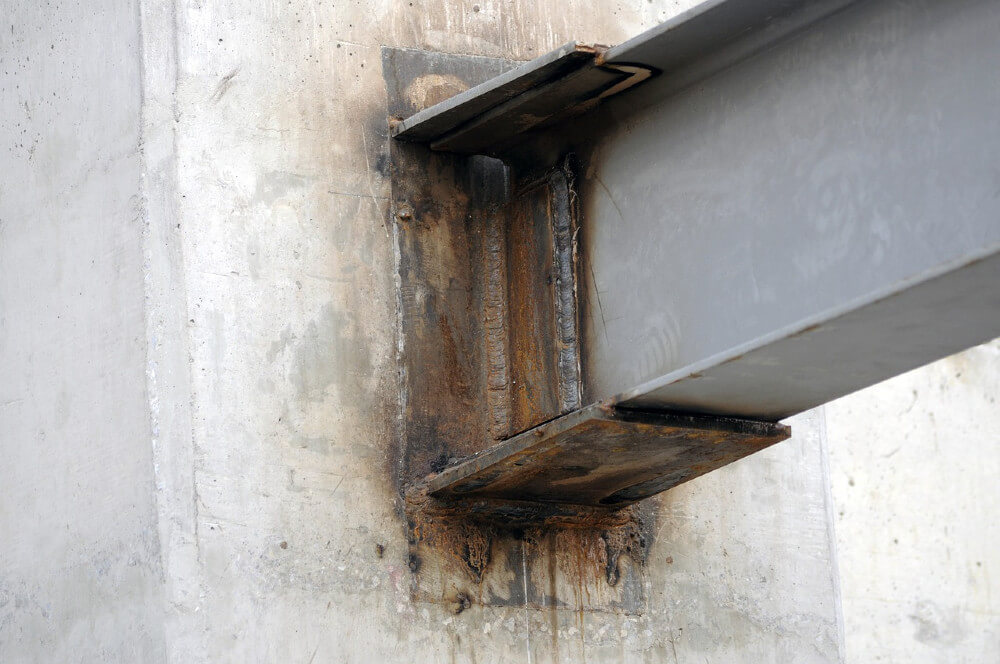
The Difference Between Steel H Beams and I Beams RWSteel
The spans that steel H beams and I beams can cover varies. I beams are less flexible and may be more suitable for shorter spans. Depending on the specifications, The Metal Store stocks I beams with a span of 1m to 3m. H beams can carry larger loads over longer spans. Our H beams can cover a variety of different spans, including 1m, 1.5m, 2m and 3m.

IBeam vs HBeam What İs the Difference? Yena Engineering
An H-beam can possibly be built up which means it can be built up to any size or height. An I-beam can only be built up as much as the manufacturer's milling equipment allows. Beam 's Span. H-beams can be used for spans up to 330 feet. An I-beam may be used for spans of between 33 and 100 feet. Flanges of the Beam.

Difference between HBeam vs IBeam Types of Beam Uses of Beam YouTube
H-beam: H-beams can be used for spans up to 330 feet. I-beam: An I-beam may be used for spans of between 33 and 100 feet. Flanges. H-beam: H-beams have top and bottom flanges that stick out further from the web than the flanges on I-beams. I-beam: I-beams have top and bottom flanges, and they are shorter and not as wide as H-beams. Number of.
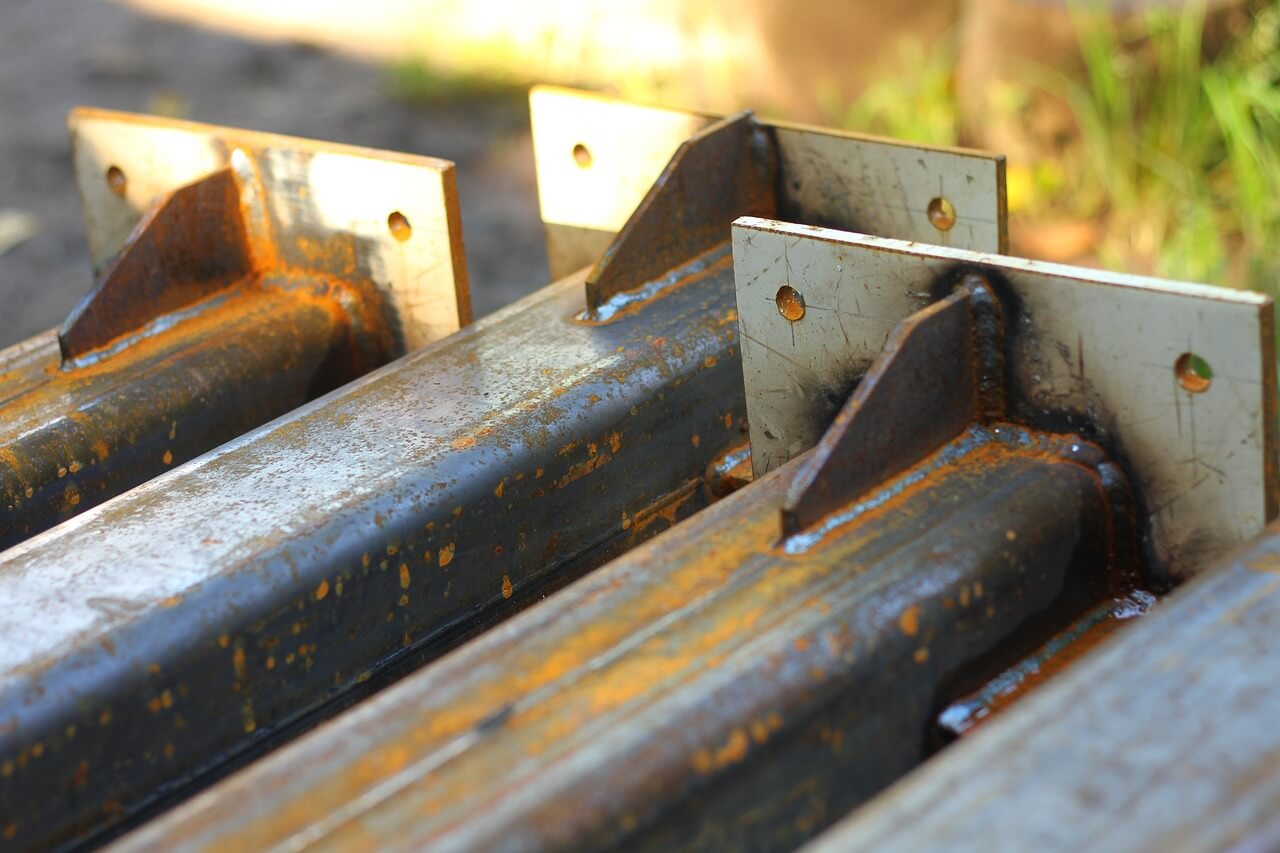
The Difference Between Steel H Beams and I Beams RWSteel
Differences Between H-beam and I-beam Steel. 1. Cross-sectional Dimensions. I-beams, whether standard or lightweight, have relatively high and narrow cross-sectional dimensions. This results in a significant difference in the moment of inertia of the two main flanges. Therefore, they are generally used directly in components that bend within.

European Standard HEB (IPB) Beam Profiles » Metal weight calculator
H-beams are used for spans of up to 330 feet that can be built up to any size and height. I-beams are lightweight compared to H-beams. H-beams are heavier than I-beams. I-beams withstand direct and tensile loads. But they cannot withstand twisting loads due to their smaller cross-sections. H-beam section can withstand direct loads and tensile.
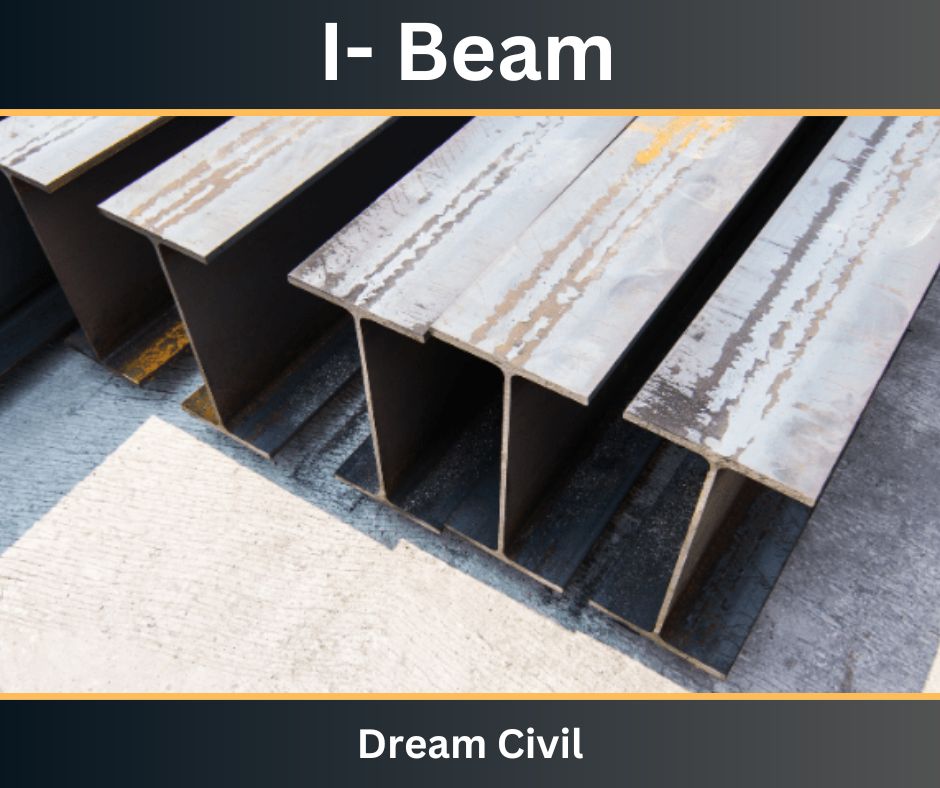
H Beam Vs I Beam Weight, Center Web, Spans, Flanges
H Beam vs I Beam is as follows: S.N. H-Beam. I-Beam. 1. It is commonly used, as a structural member named after its cross-section in the form of a capital H. It is a steel girder or joist with a cross-section in the form of capital I. 2. It provides more strength per unit of weight which makes its welding simpler than that of an I beam.
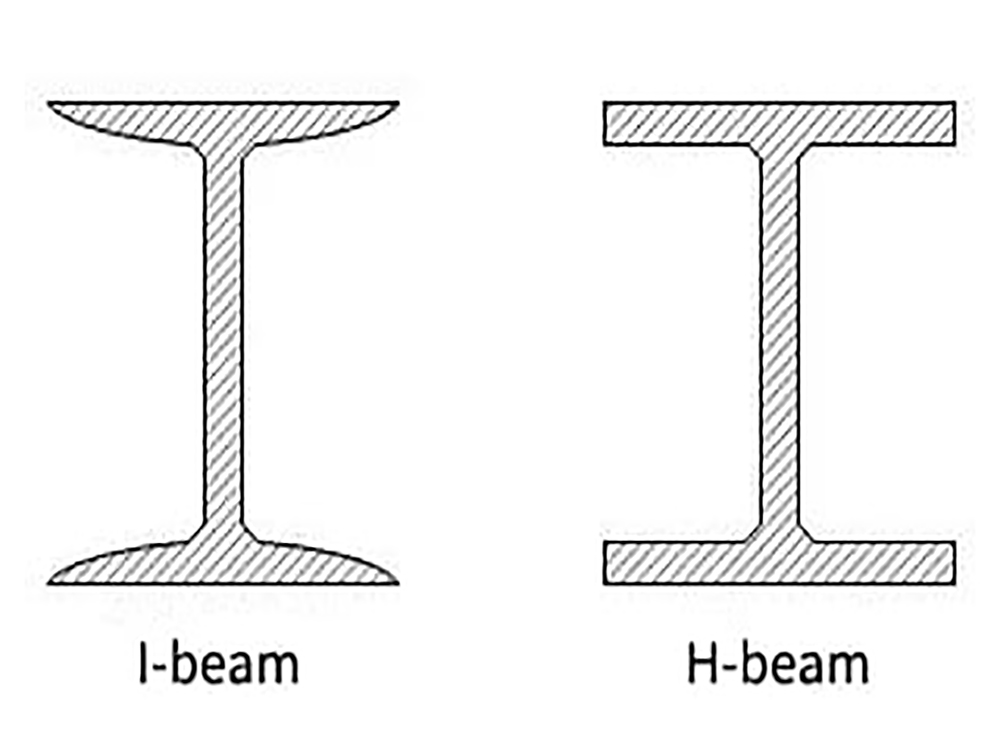
Steel H Pile Beams Contractor and Services Fender Marine Construction
H Beam Vs I Beam, Structural steel has been used extensively in the construction of commercial buildings since the first steel-framed building, the Rand Mcnally Building erected in 1890.. Since then, steel has been used for major construction projects. The availability of steel makes it much easier to use. First, it bonds well to concrete and has many features that make it even better than.
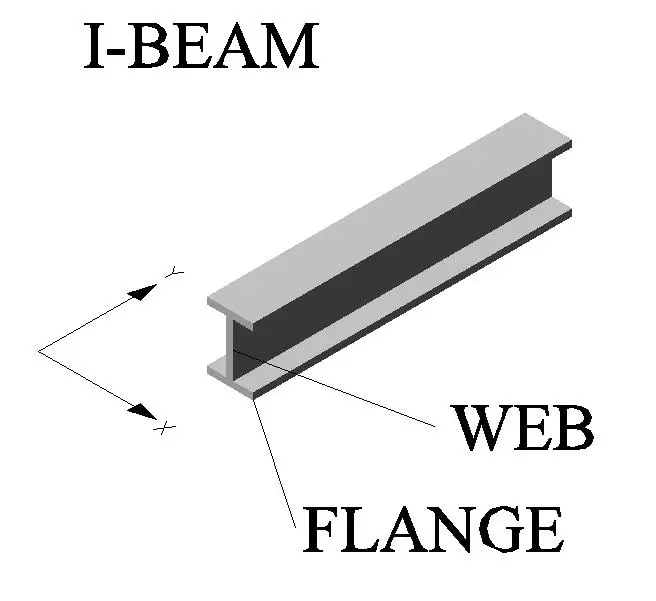
Difference Between HBeam and IBeam
This unique look is part of what makes it easy to see the difference between an H-beam and an I-beam. While an H-beam is quite uniform in its shape, an I-beam will be taller than it is wide. The tapering in an I-beam creates thinner slopes for the upper and lower flanges. You can expect a 1:6 ratio, which means the thin edges point toward the.
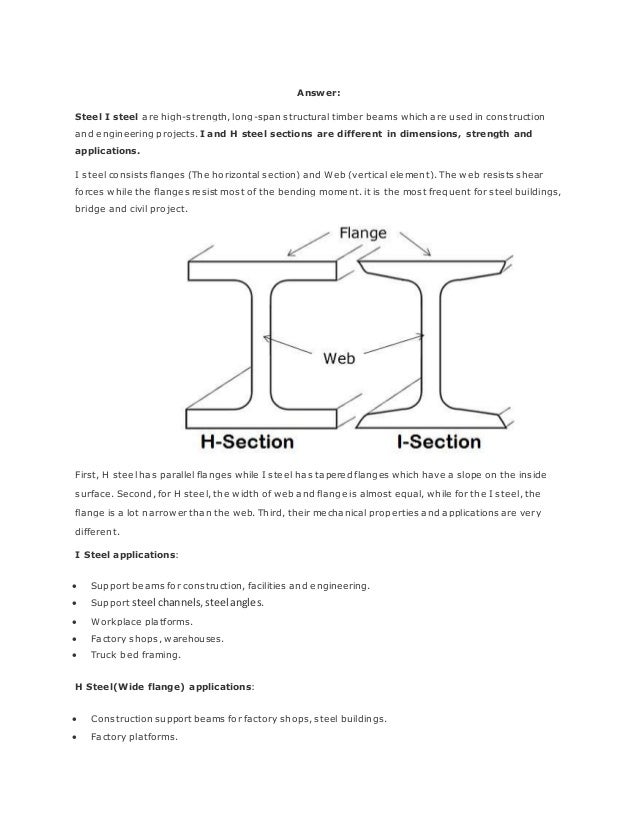
H Beam Vs I Beam slidesharedocs
The H-beam has wider flanges than an I-beam, but the I-beam has tapered edges. The width is the flange, and the height is the Web. The difference between both H-beams and I-beams is the flange by web ratio. The H-beam tends to be heavier than the I-beam, and that is why some say that it is better than the I-beam, but that is subjective, as the.

H Beam Rods Vs I Beam Rods
An I-beam normally has a slope of 1:6 to 1: 10 in the flange whereas the H-beam has a uniform flange. An H-beam is heavier as compared to an I-beam. The distance of the flanges can be widened as per requirement for an H-beam section but the same is fixed for the I-beam. The moment of inertia is different for both beams.
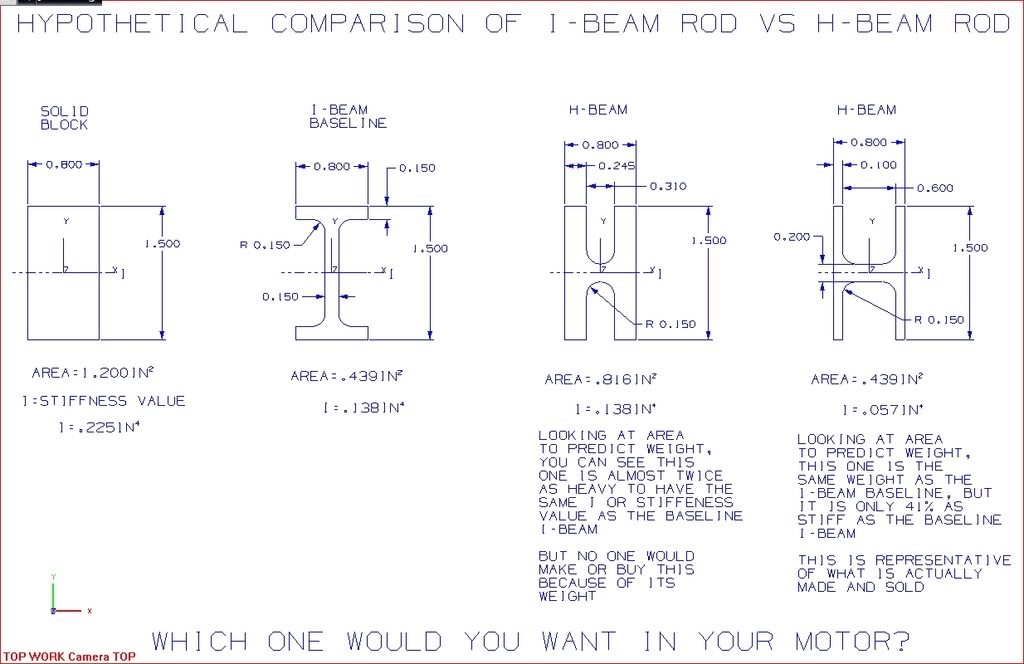
Finally, an analysis of IBeam rods vs HBeam rods CorvetteForum Chevrolet Corvette Forum
H beam and I beam rods have different designs: the former has an 'H' cross-section, whereas its counterpart has an 'I' cross-section. The forms, while diverse, perform the exact role of enhancing shank strength and weight distribution. The I-beam rod is like a solid metal mass, with a relief spot along the shank for weight distribution.

IBeam vs HBeam What İs the Difference? Yena Engineering
Here the S6 designates the Standard I-Beam shape profile at 6″ tall. 12.5 is the weight (steel) in lbs per foot of length. All the other dimensions like width of the flanges, thicknesses of web and flanges, are baked into the standard for this beam at 12.5 lbs/ft. You must look it up to know that beam is 3.33″ wide.

HBeam vs IBeam What Is HBeam What Is IBeam
H-Beam vs. I-Beam: Comparison Chart . Summary of H-Beam Vs. I-Beam. While both the terms H-beam and I-beam are often used interchangeably in the construction industry, saying one is better than the other is quite subjective. Both are the two most common structural steel beams used in various structural steel works such as support beams for both.